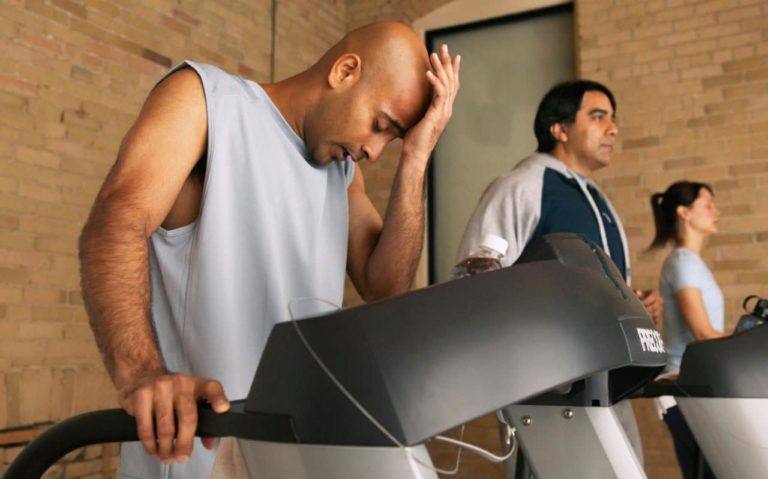
Heart-related cause: Angina
People with angina describe their chest pain as a pressure or more like a strange feeling of the heart being squeezed. This type of chest pain happens when blood supply that flows to the heart muscle is drastically reduced. Right now, more than 9 million Americans are affected by angina.
Apart from a sensation of pressure in your chest, you may also experience:
- dizziness
- pain somewhere in the upper body
- burning in the shoulder (usually the left one)
Although they are quite different, people tend to confuse angina with a heart attack. For instance, angina doesn’t lead to heart tissue permanent damage like a heart attack does. Plus, there are actually two totally different types of angina, namely stable and unstable.
As the name suggests, the first one is predictable, and it occurs when you’re performing certain physical activities, such as intense workouts. Stable angina appears when the heart pumps harder than normal.
Unstable angina occurs anytime. You can have it even when you’re just sitting on the couch, watching a movie. That’s why unstable angina is more serious than stable one. It actually suggests that your risk of having a heart attack is almost imminent.
However, no matter what type of angina you might experience, call 911.
Heart-related cause: heart attack
The chest pain caused by an ongoing heart attack is described by most patients as a sharp pain like someone is stabbing you right in your chest. A heart attack happens when one (or more) artery that’s responsible for supplying blood to your heart muscle is blocked.
As a result, if your heart muscle is deprived of oxygen-rich blood, its response will be severe pain. This happens with all muscles. In addition to sharp pain, some people may also experience the following:
- nausea
- lightheadedness
- irregular pulse
- shortness of breath
- a cold sweat
- sudden weakness
- a feeling of choking
- numbness in arm
There’s no need to mention that a heart attack is always a medical emergency… But, your response to it is crucial. The sooner you call for medical attention, the better.
Heart-related cause: Myocarditis
Myocarditis chest pain is often referred to as a mild one or a strange feeling of pressure. In certain cases, this pain appears due to heart muscle inflammation, which is often caused by a viral infection. Each year, there are approximately 1.5 million myocarditis cases worldwide.
Along with a feeling of pressure, you may also have:
- shortness of breath
- heart palpitations
- swollen legs
When these symptoms are mild or almost nonexistent, you should make an appointment with your doctor soon, but if the symptoms are severe, call 911 immediately.

























